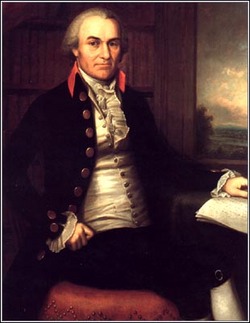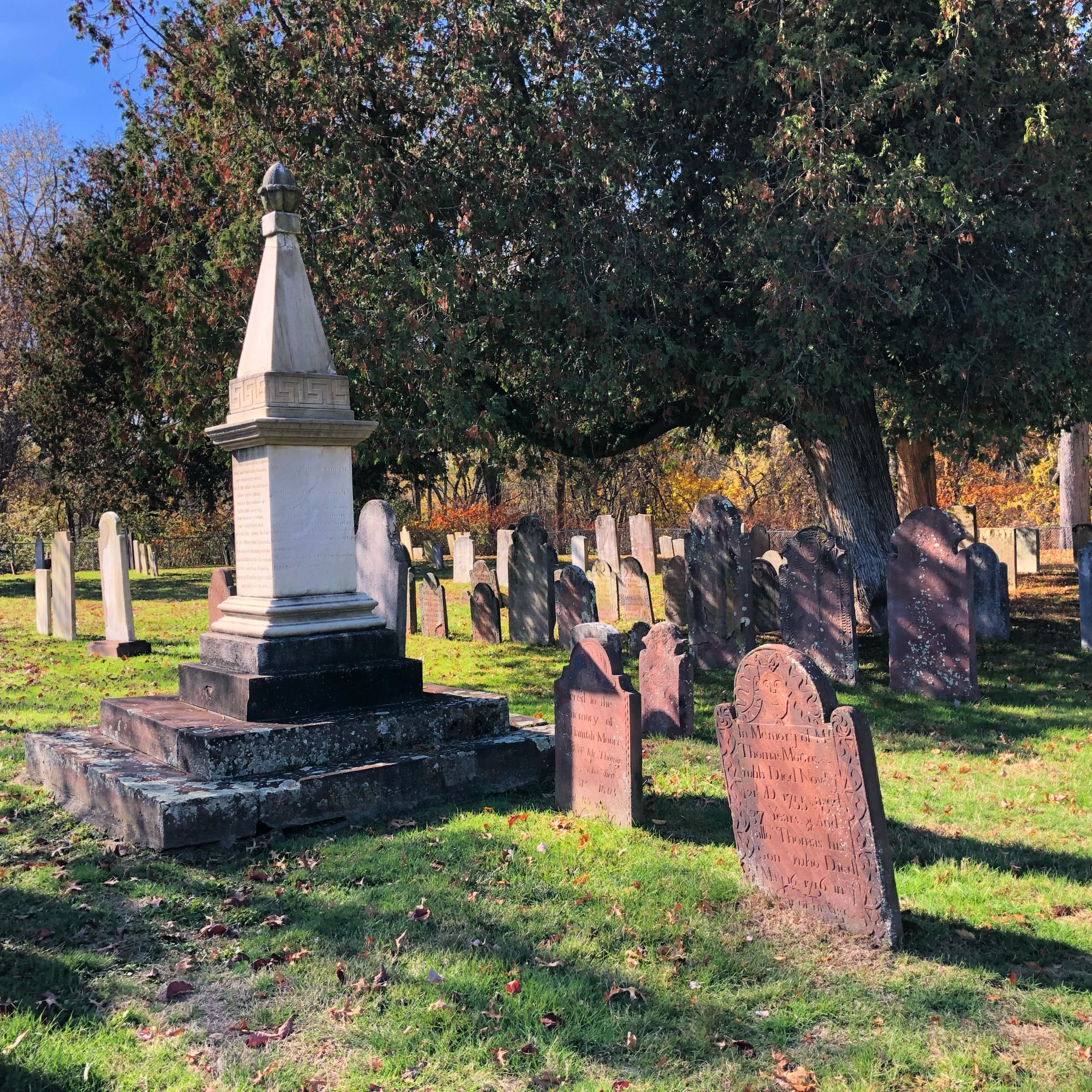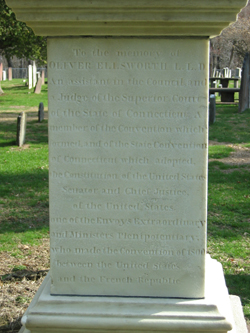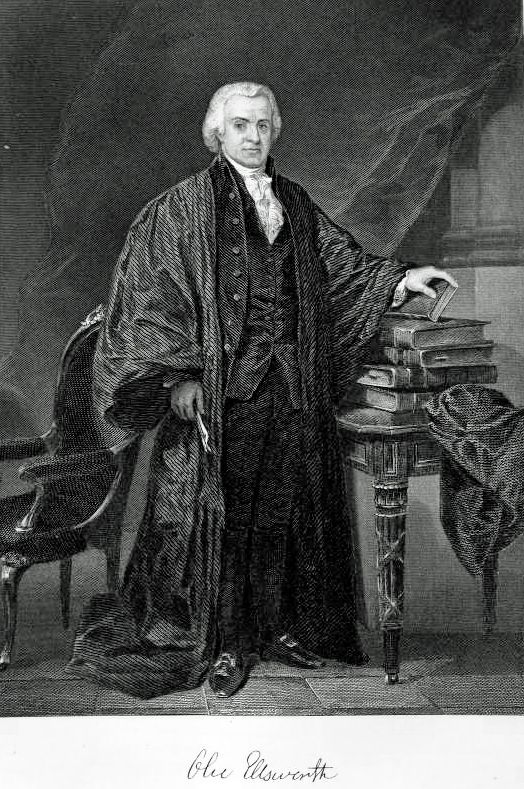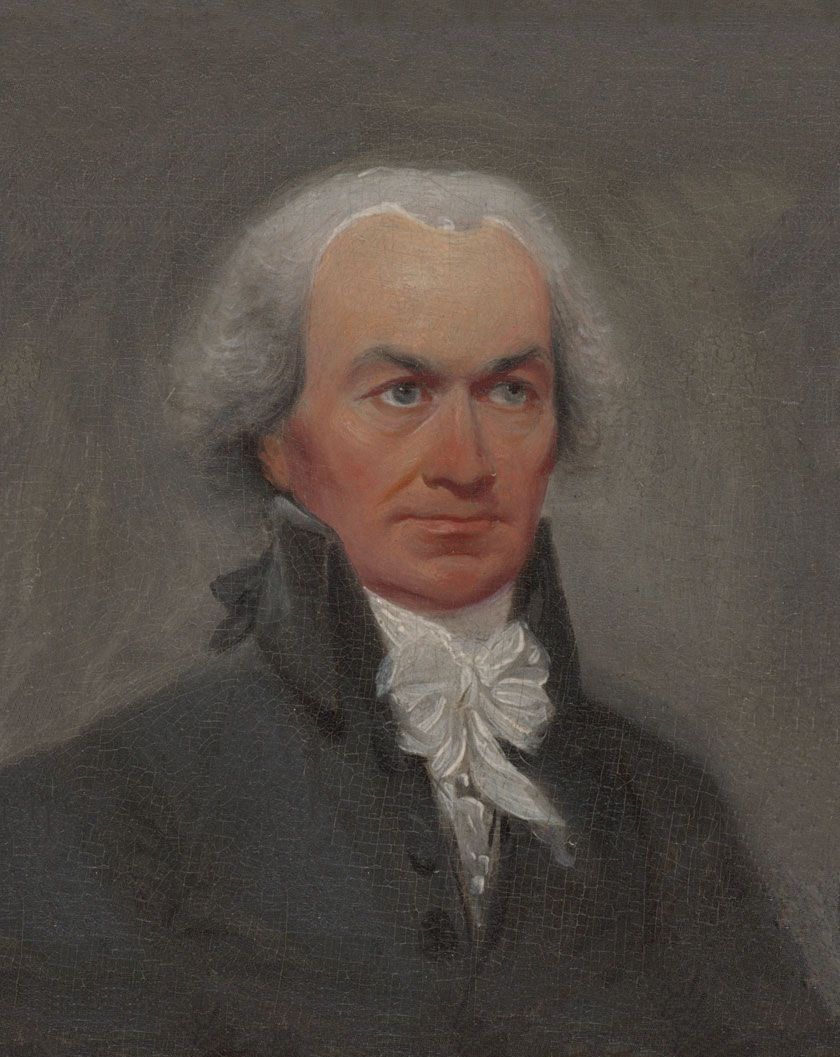Jurist, US Senator, US Supreme Court Chief Justice. A member of the Federalist Party, he served in the US Senate from the state of Connecticut from March 1789 until March 1796 and 3rd Chief Justice of the US Supreme Court from March 1796 until September 1800. He entered Yale University at New Haven, Connecticut in 1762 to study theology, transferring in 1764 to the College of New Jersey (later Princeton University) at Princeton, New Jersey, where he graduated with a Bachelor of Arts Degree. His interests then turned to law and following four years of study, he was admitted to the bar in 1771. He established a law practice and in 1777 he entered politics when he became the state attorney for Hartford County, Connecticut and was selected as one of Connecticut's representatives in the newly formed Continental Congress and served on the Maritime Committee, the Board of Treasury, the Committee of Appeals, and the Council of Safety. As a judge, he served on the Connecticut Supreme Court of Errors and the Connecticut Superior Court. In May 1787 he joined the Constitutional Convention as a delegate from Connecticut and was instrumental in drafting the language of the US Constitution, and was responsible for substituting "United States" in lieu of "national government" as the official designated title for the for the government. In March 1789 he began serving as one of the first two US Senators from Connecticut and his first legislation was the Judiciary Act that supplemented Article III of the US Constitution. He sponsored the Senate's approval of the Bill of Rights and was instrumental in incorporating the First Bank of the United States, regulating the consular service, and convincing US President George Washington to send US Supreme Court Chief Justice John Jay to England to negotiate the 1794 Jay Treaty. In March 1796 he was nominated by President Washington and confirmed by the US Senate as the 3rd Chief Justice of the US Supreme Court, to replace John Rutledge, who had been selected by President Washington to replace John Jay the previous year. However, in December 1795, the US Senate rejected Rutledge's formal nomination due to his public renunciation of the Jay Treaty with England, which cost him the support of many in the Washington administration. During his tenure, he became the US Envoy Extraordinary to France and helped to settle differences with Napoleon's government concerning restrictions on US shipping that became unpopular with the American people. Soon afterwards, his health began to fail and he resigned in September 1800 and was replaced by John Marshall. In 1803 he was elected a fellow of the American Academy of Arts and Sciences. He died at his home at the age of 62. The town of Ellsworth, Maine is named in his honor.
Jurist, US Senator, US Supreme Court Chief Justice. A member of the Federalist Party, he served in the US Senate from the state of Connecticut from March 1789 until March 1796 and 3rd Chief Justice of the US Supreme Court from March 1796 until September 1800. He entered Yale University at New Haven, Connecticut in 1762 to study theology, transferring in 1764 to the College of New Jersey (later Princeton University) at Princeton, New Jersey, where he graduated with a Bachelor of Arts Degree. His interests then turned to law and following four years of study, he was admitted to the bar in 1771. He established a law practice and in 1777 he entered politics when he became the state attorney for Hartford County, Connecticut and was selected as one of Connecticut's representatives in the newly formed Continental Congress and served on the Maritime Committee, the Board of Treasury, the Committee of Appeals, and the Council of Safety. As a judge, he served on the Connecticut Supreme Court of Errors and the Connecticut Superior Court. In May 1787 he joined the Constitutional Convention as a delegate from Connecticut and was instrumental in drafting the language of the US Constitution, and was responsible for substituting "United States" in lieu of "national government" as the official designated title for the for the government. In March 1789 he began serving as one of the first two US Senators from Connecticut and his first legislation was the Judiciary Act that supplemented Article III of the US Constitution. He sponsored the Senate's approval of the Bill of Rights and was instrumental in incorporating the First Bank of the United States, regulating the consular service, and convincing US President George Washington to send US Supreme Court Chief Justice John Jay to England to negotiate the 1794 Jay Treaty. In March 1796 he was nominated by President Washington and confirmed by the US Senate as the 3rd Chief Justice of the US Supreme Court, to replace John Rutledge, who had been selected by President Washington to replace John Jay the previous year. However, in December 1795, the US Senate rejected Rutledge's formal nomination due to his public renunciation of the Jay Treaty with England, which cost him the support of many in the Washington administration. During his tenure, he became the US Envoy Extraordinary to France and helped to settle differences with Napoleon's government concerning restrictions on US shipping that became unpopular with the American people. Soon afterwards, his health began to fail and he resigned in September 1800 and was replaced by John Marshall. In 1803 he was elected a fellow of the American Academy of Arts and Sciences. He died at his home at the age of 62. The town of Ellsworth, Maine is named in his honor.
Bio by: William Bjornstad
Inscription
In the memory of
OLIVER ELLSWORTH L.L.D.
An assistant in the Council and
a Judge of the Superior Court
of the State of Connecticut. A
member of the Convention which
formed and of the State Convention
of Connecticut which adopted
the Constitution of the United States.
Senator and Chief Justice
of the United States,
one of the Envoys Extraordinary
and Ministers Plenipotentiary
who made the convention of 1800
between the United States
and the French Republic.
Family Members
Advertisement
